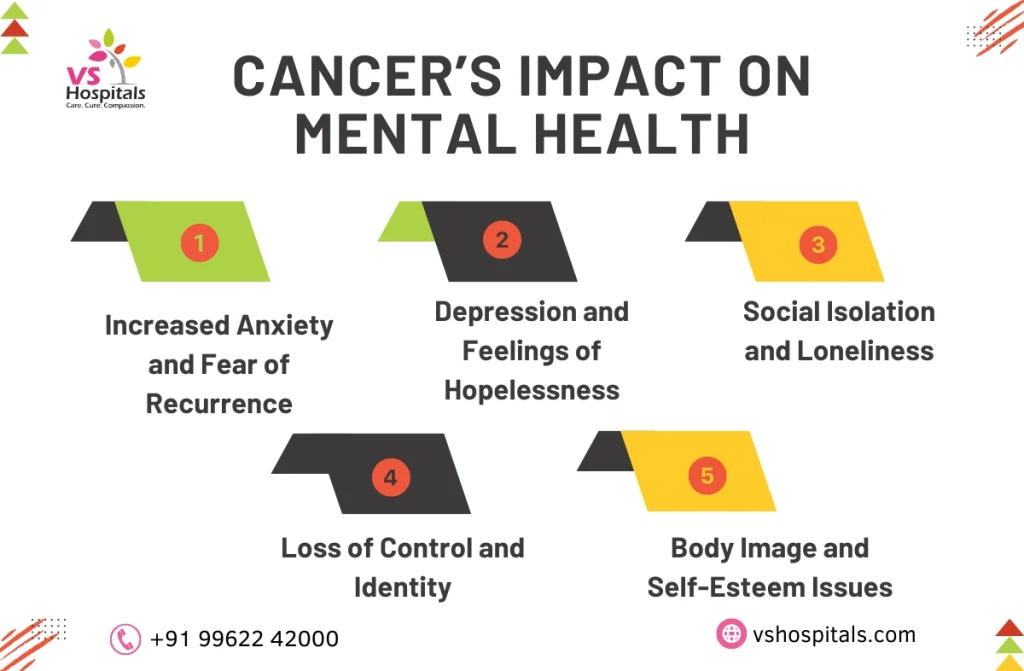Cancer and mental health are closely intertwined, as a cancer diagnosis brings not only physical challenges but significant emotional ones. Facing cancer often leads to anxiety, depression, and social isolation, affecting overall well-being. Many patients struggle with mental health due to the toll of treatment and uncertainty about the future. Understanding the link between cancer and mental health is essential for providing holistic care and supporting patients through every stage of their journey.

Mental Health and Distress
Cancer can profoundly impact mental health, causing various forms of emotional distress. Patients may experience persistent anxiety, depression, and even social isolation due to the challenges of living with cancer. Managing both cancer and mental health can be overwhelming, but recognizing common symptoms helps in addressing these needs effectively.
- Anxiety: Fear of the unknown can lead to constant worry and restlessness.
- Depression: Feelings of hopelessness and sadness may set in, affecting daily life.
- Social Isolation: Many patients feel disconnected from friends and family, increasing loneliness.
These emotional responses are part of the long-term psychological effects of cancer and require comprehensive mental health support for recovery.
Cancer and Mental Health: The Overlapping Struggles
The journey through cancer affects not only the body but also mental health. Cancer and mental health often intersect, creating challenges that can be hard to overcome without support. Patients face overlapping struggles that require attention for holistic healing. Key mental health impacts include:
- Physical Pain: Persistent pain can lead to emotional distress and lowered mood.
- Fatigue and Exhaustion: Fatigue from treatments affects motivation and mental energy.
- Fear of the Unknown: Uncertainty about recovery can increase anxiety.
Addressing these challenges improves both cancer outcomes and mental health, helping patients manage their emotional and physical well-being together.
How Many People with Cancer Have a Mental Health Condition?
A significant number of cancer patients experience mental health challenges throughout their journey. Studies show that around one-third of individuals diagnosed with cancer develop conditions like anxiety, depression, or post-traumatic stress disorder (PTSD), impacting both their quality of life and treatment outcomes. Addressing “mental cancer symptoms” is essential for comprehensive care. Some common mental health conditions seen in cancer patients include:
- Anxiety: Fear about treatment and future health
- Depression: Feelings of hopelessness that affect daily life
- PTSD: Trauma from the diagnosis or treatment experience
These “long-term psychological effects of cancer” highlight the need for integrated mental health support.
Barriers to Mental Health Care for Cancer Patients
Cancer patients often face several barriers when trying to access mental health support. Addressing “mental health and cancer outcomes” requires recognizing these challenges to ensure comprehensive care. Common obstacles include:
- Stigma: Many patients feel a stigma around seeking mental health care, fearing judgment from others.
- Financial Burdens: Cancer treatment is expensive, and adding mental health services can seem overwhelming.
- Awareness Gaps: Some patients aren’t aware of the impact that “mental cancer symptoms” can have on their recovery.
These barriers can prevent patients from getting the mental health support they need, affecting both their emotional resilience and overall health outcomes.
Mental Health Treatment Can Improve Survival Rates
Addressing mental health can positively impact cancer survival rates. Research shows that when “cancer and mental health” are managed together, patients often cope better, experience fewer symptoms, and may even improve their chances of recovery. Mental health treatment helps patients manage “mental cancer symptoms” such as anxiety and depression, which can directly affect physical health outcomes.
- Emotional support reduces stress levels, helping the immune system function more effectively.
- Therapy can enhance patients’ adherence to treatment plans.
- Mindfulness and relaxation techniques help reduce physical pain and discomfort.
By supporting both physical and mental health, VS Hospitals helps patients strengthen their resilience, improving overall quality of life.
Ways to Cope with Your Emotions During Cancer
Managing your mental health is essential when facing the physical and emotional challenges of cancer. Here are some practical ways to cope:
- Therapy and Counseling: Speaking with a mental health professional can help you work through emotions and develop coping strategies.
- Support Groups: Joining a group allows you to connect with others who understand the journey, reducing feelings of loneliness and isolation.
- Mindfulness and Meditation: These practices can help manage stress and anxiety, supporting mental health and cancer outcomes.
- Physical Activity: Gentle exercise like yoga or walking boosts mood and resilience.
Taking these steps can improve mental health and help patients feel more in control.
Conclusion
Cancer and mental health are deeply connected, making it vital to address both physical and emotional needs. The mental impact of cancer can be challenging, but with the right support, patients can find strength and resilience. At VS Hospitals, comprehensive care goes beyond treating cancer, focusing on mental health to support each patient fully. By caring for both cancer and mental health, we empower individuals to face their journey with courage and hope for a better quality of life.




